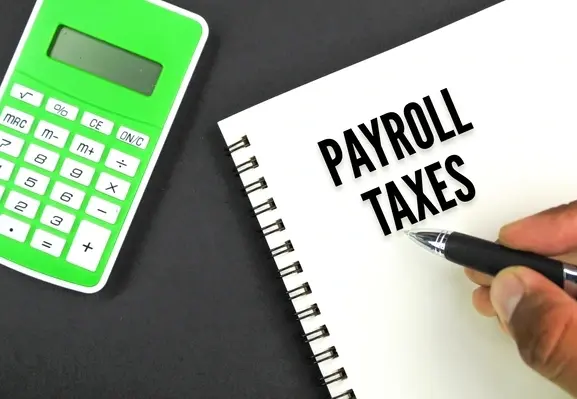Payroll taxes. They seem to magically disappear from your paycheck every payday, but what exactly are they? And where do they go? Buckle up, because we're diving deep into the world of payroll taxes, explaining what they are, who pays them, and how they impact you.
What are Payroll Taxes?
In a nutshell, payroll taxes are mandatory contributions deducted from your paycheck (and sometimes paid by your employer as well). These taxes are typically a percentage of your wages and are used to fund various government programs. They can be federal, state, or local, depending on the specific tax.
Who Pays Payroll Taxes?
There are two main players in the payroll tax game: you (the employee) and your employer.
Employee Payroll Taxes: As an employee, you'll likely contribute to federal programs like Social Security and Medicare. These contributions are often referred to as FICA (Federal Insurance Contributions Act) taxes. The percentage you pay may vary depending on the program, but it's typically deducted directly from your paycheck.
Employer Payroll Taxes: Your employer also has a responsibility to chip in. They typically pay a matching share of FICA taxes, as well as unemployment taxes that help fund unemployment benefits. Additionally, some states or localities might have their employer-side payroll taxes, like for disability insurance.
Common Types of Payroll Taxes (US Focus):
Social Security: This tax goes towards funding Social Security, a social insurance program that provides retirement benefits to eligible individuals.
Medicare: This tax helps fund Medicare, a national health insurance program for seniors and individuals with disabilities.
Federal Unemployment Tax Act (FUTA): This federal tax is paid by employers to help fund unemployment benefits.
State and Local Unemployment Taxes (SUTA/LUTA): These vary by state/locality and are also paid by employers to support unemployment programs.
Why are Payroll Taxes Important?
Payroll taxes are crucial for funding essential government programs. Here's a breakdown of how your contributions are used:
Social Security: Provides you with a steady income stream when you retire.
Medicare: Helps cover medical expenses for seniors and people with disabilities.
Unemployment Taxes: Provide temporary financial assistance to those who lose their jobs through no fault of their own.
How Much are Payroll Taxes?
The specific amount of payroll taxes you pay depends on several factors, including:
Your wages: Payroll taxes are typically calculated as a percentage of your earnings.
Location: State and local taxes can add to your overall payroll tax burden.
Tax filing status: In some cases, your filing status (single, married, etc.) might affect your payroll tax deductions.
Finding Your Payroll Taxes:
Ever wonder where all that money magically disappears? Your pay stub is your friend! It will usually have a breakdown of your earnings, deductions, and taxes withheld, including details on your payroll tax contributions.
The Impact of Payroll Taxes:
Payroll taxes do affect your take-home pay. However, it's important to remember that these contributions are an investment in your future and the well-being of society. They ensure programs like Social Security and Medicare are there when you need them.
Beyond the Basics:
While this is a broad overview, the world of payroll taxes can get more intricate. Here are some additional points to consider:
Self-employment Taxes: If you're self-employed, you're responsible for paying both the employee and employer portions of payroll taxes (Social Security and Medicare).
Pre-tax vs. Post-tax Deductions: Some employer-sponsored benefits, like health insurance, might be deducted from your paycheck pre-tax, lowering your taxable income and the amount of payroll taxes withheld.
Tax Brackets: Depending on your income level, you might fall into different tax brackets, which can influence how much payroll tax you owe.
Remember: Payroll taxes are a vital part of the financial system. By understanding them, you can make informed decisions about your finances and plan for the future. If you have any further questions or complexities regarding your specific situation, it's always a good idea to consult with a tax professional. you can consider online payroll services.
Contact us here for Payroll Taxes now!


